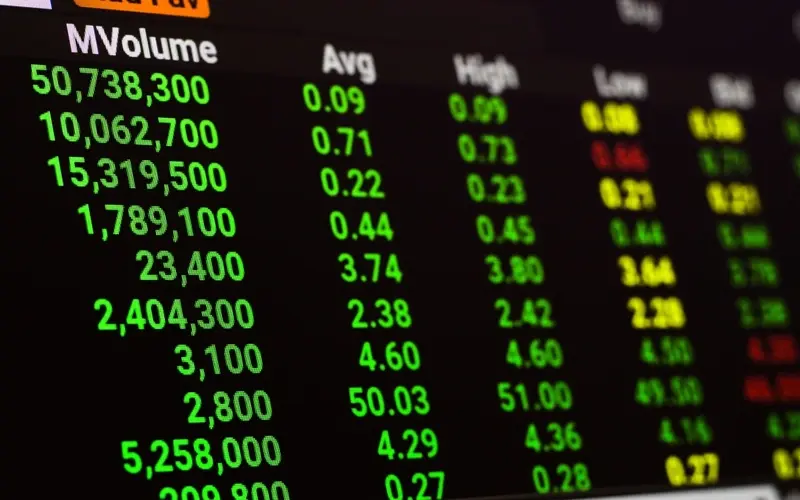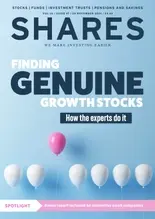
Stocks in London headed higher on Thursday, in line with the positive mood seen across global equity markets following the interest rate cut from the European Central Bank.
The FTSE 100 index rose 47.03 points, or 0.6%, at 8,240.97. The FTSE 250 ended up 158.52 points, 0.8%, at 20,695.77, and the AIM All-Share firmed 3.27 points, or 0.4%, at 741.36.
The Cboe UK 100 rose 0.5% to 823.99, the Cboe UK 250 advanced 0.8% at 18,231.74, and the Cboe Small Companies ended up 0.7% at 16,727.75.
In European equities on Thursday, the CAC 40 in Paris climbed 0.4%, while the DAX 40 in Frankfurt gained 1.0%.
The European Central Bank on Thursday cut interest rates as expected, but emphasised it was not ‘pre-committing’ to a set path for monetary policy.
The Frankfurt-based official lender trimmed its key deposit rate by 25 basis points to 3.50%, from 3.75%.
Whilst ECB President Christine Lagarde in July had said the decision for September was ‘wide open’, the market had been widely expecting a cut.
As for what comes next, with the following meeting five weeks away, Lagarde was tight-lipped. Lagarde repeated that the ECB is ‘data-dependent’, although she affirmed that statement should not be confused with the central bank being too focused on any one economic print.
Lagarde decided against making a commitment for October’s decision.
‘We will continue to follow a data-dependent and meeting-by-meeting approach to determining the appropriate level and duration of restriction,’ she commented.
Andrew Kenningham at Capital Economics said there was ‘never any doubt that the ECB would cut its deposit rate by 25bp today, to 3.5%. Meanwhile, the policy statement is largely as expected and does not change our view that the ECB will probably leave rates on hold until December before cutting again.’
But Carsten Brzeski at ING thinks a weakening eurozone growth outlook ‘should be the trigger to eventually go for more aggressive rate cuts’.
‘Given that the ECB’s forecasts have been structurally overestimating the timing and the strength of the eurozone economy, it only seems to be a matter of time before a bleaker growth outlook will translate into more aggressive rate cuts.’
On Wall Street at the time of London’s close, markets were mixed. The Dow Jones Industrial Average was slightly lower, the S&P 500 was 0.1% higher and the Nasdaq Composite rose 0.3%.
US producer prices grew at a slower pace than expected on-year in August, numbers showed.
The Bureau of Labor Statistics said US producer prices rose 1.7% year-on-year last month, cooling after a 2.1% climb in July.
August’s reading was tamer than expected. A rise of 1.8% was expected, according to FXStreet cited consensus.
Producer prices rose 0.2% on-month in August. They had been flat in July from June. August’s monthly rise topped the FXStreet cited consensus of a 0.1% rise.
Excluding food and energy, producer prices rose 2.4% on-year in August, in line with July’s rise, but falling short of expectations of 2.5%.
Month-on-month, core producer prices rose 0.3% in August, following a 0.2% decrease in July. August’s reading topped consensus of 0.2%.
The figures followed US consumer price inflation figures on Wednesday which showed a larger than expected rise in core prices on-month.
The pound was quoted at $1.3079 late Thursday afternoon in London, up compared to $1.3026 at the equities close on Wednesday. The euro stood at $1.1036, up against $1.1013. Against the yen, the dollar was trading at JP¥142.33, up compared to JP¥141.58.
On London’s FTSE 100 a rise in the gold price helped send Fresnillo up by 3.6% and Endeavour Mining up 2.8%.
The price of gold rose to $2,552.77 an ounce against $2,512.09.
Mining stocks were generally well supported as metals price rallied. Anglo American rose 3.0%, Glencore climbed 2.7% and Antofagasta firmed 2.3%.
Meanwhile, Diageo rose 3.0% as Bank of America upgraded to ’buy’ from ’neutral’.
The broker thinks that after a ‘challenging’ two years, with around 30% consensus earnings per share downgrades and shares falling around 40%, the worst is behind for the maker of Johnnie Walker and Guinness.
‘We remain convinced that international spirits is an attractive category and although growth may not return quite to pre-pandemic levels in some markets....Diageo is well positioned with its category exposure, brand portfolio, best in class capabilities to grow sales.’
But Rentokil Initial fell a further 2.1% after Wednesday’s profit warning.
Goldman Sachs said the warning ‘signals sequential deterioration in volumes and raises concerns around growth trends into 2025 and beyond’.
On the FTSE 250, it was full steam ahead for Trainline which rose 9.2% after predicting adjusted earnings would top previous guidance.
It said revenue in the half-year ended August 31 climbed 16% to £229 million from £197 million.
Net ticket sales amounted to £3.00 billion, a rise of 13% on-year from £2.65 billion.
Analysts at Shore Capital Markets commented: ‘We believe Trainline has an unmatched presence in the UK market with...growth expected to be supported by the increasing digitalisation of the industry.’
Also on the rise, NCC Group leapt 11% after the cyber security company raised its profit outlook.
For the four months to September 30, it now expects adjusted operating profit of around £6 million, on revenue of £104 million. It had previously predicted profit of £3.5 million on revenue of around £100 million. It had suffered a $1 million loss a year prior.
On AIM, shares in Fevertree Drinks fell 12% amid lowered sales guidance as poor weather contributed to below par first-half results.
In the six months ending June, the London-based maker of carbonated mixers said revenue fell 1.5% to £172.9 million from £175.6 million a year prior. This was below Visible Alpha consensus of 3.6% growth.
Fevertree said the results reflected a ‘subdued consumer backdrop and poor weather in the second quarter across the UK and Europe.’
Brent oil was quoted at $72.35 barrel at the time of the London equities close on Thursday, up from $70.32 late Wednesday.
Copyright 2024 Alliance News Ltd. All Rights Reserved.




